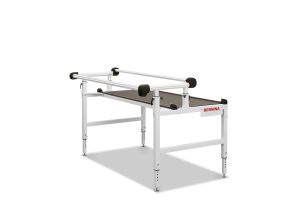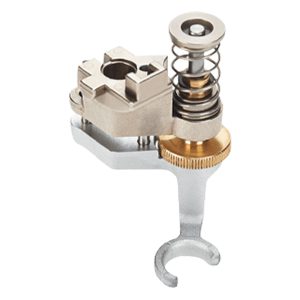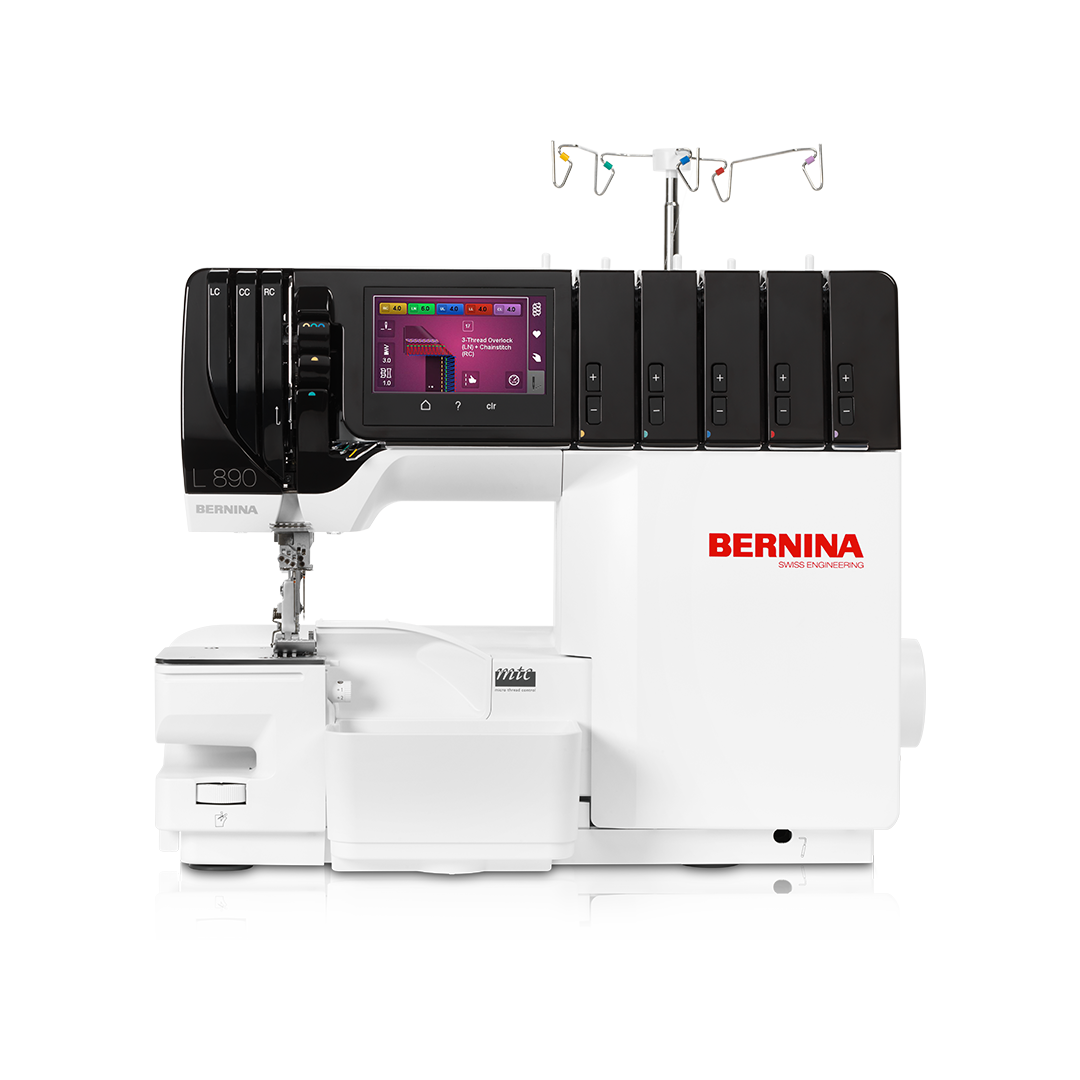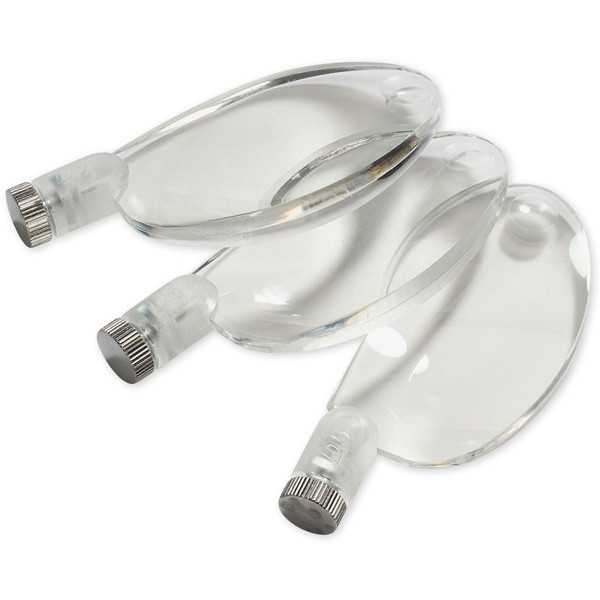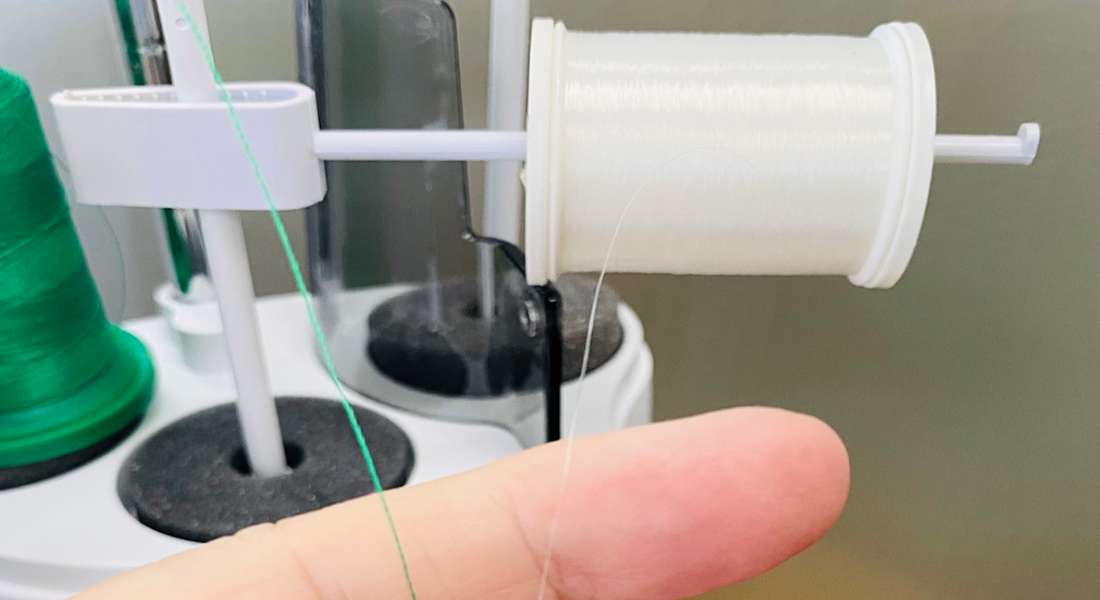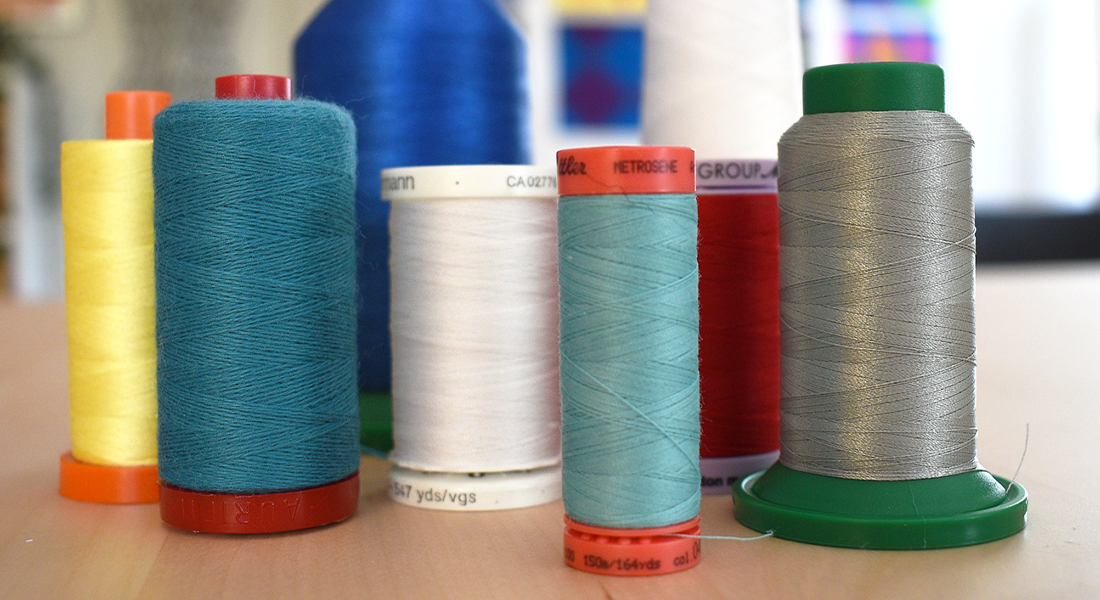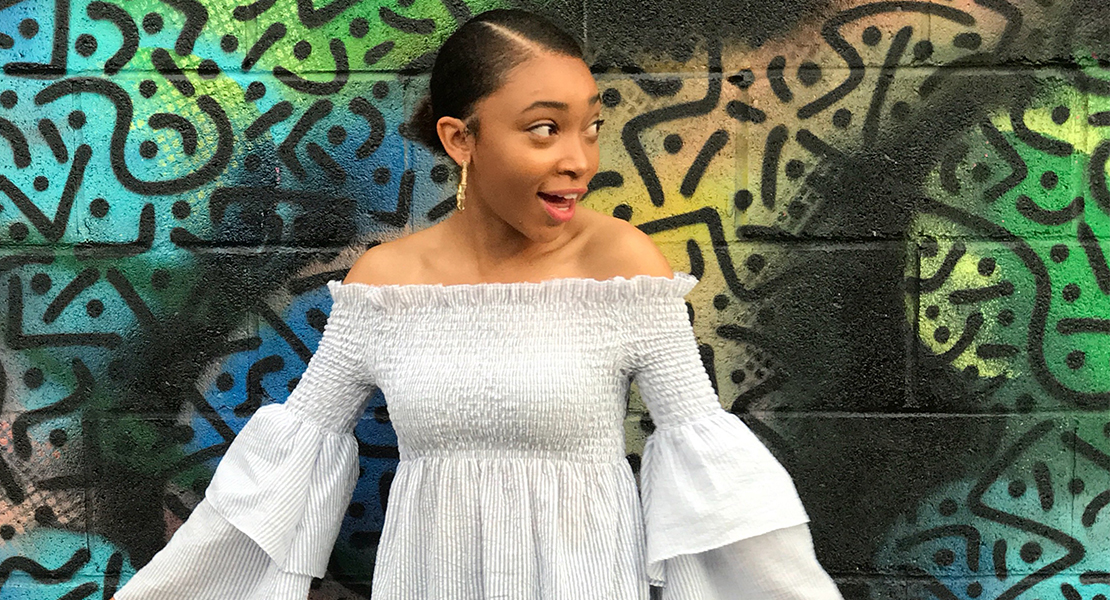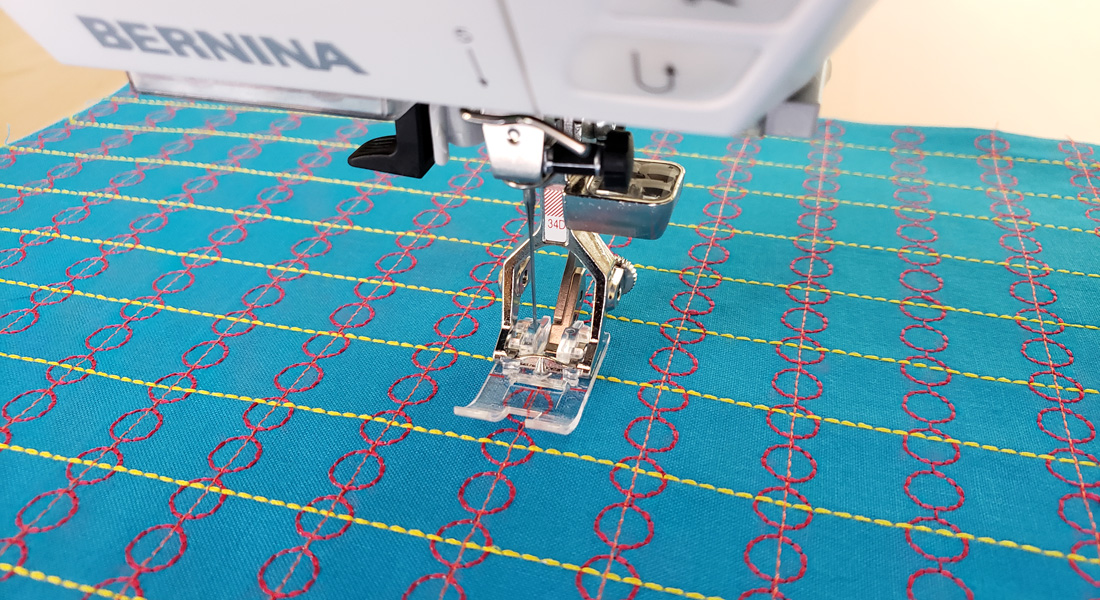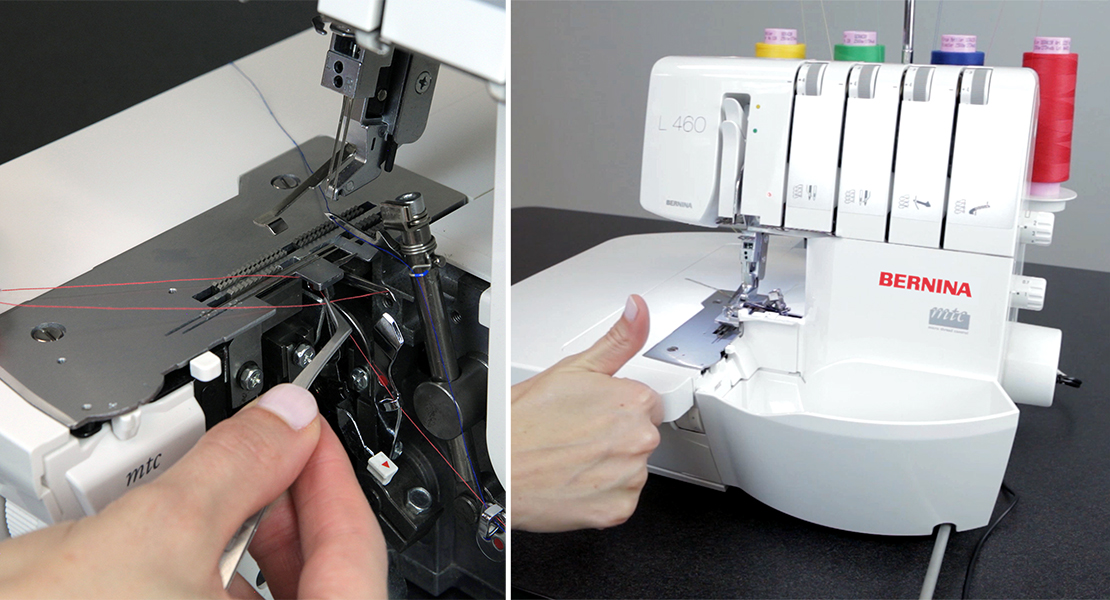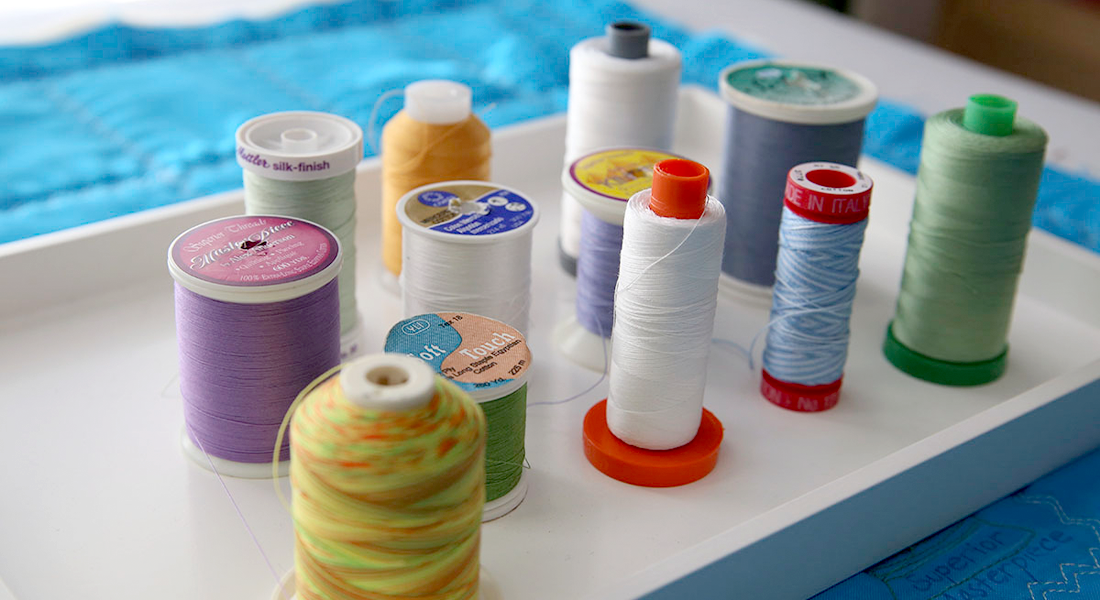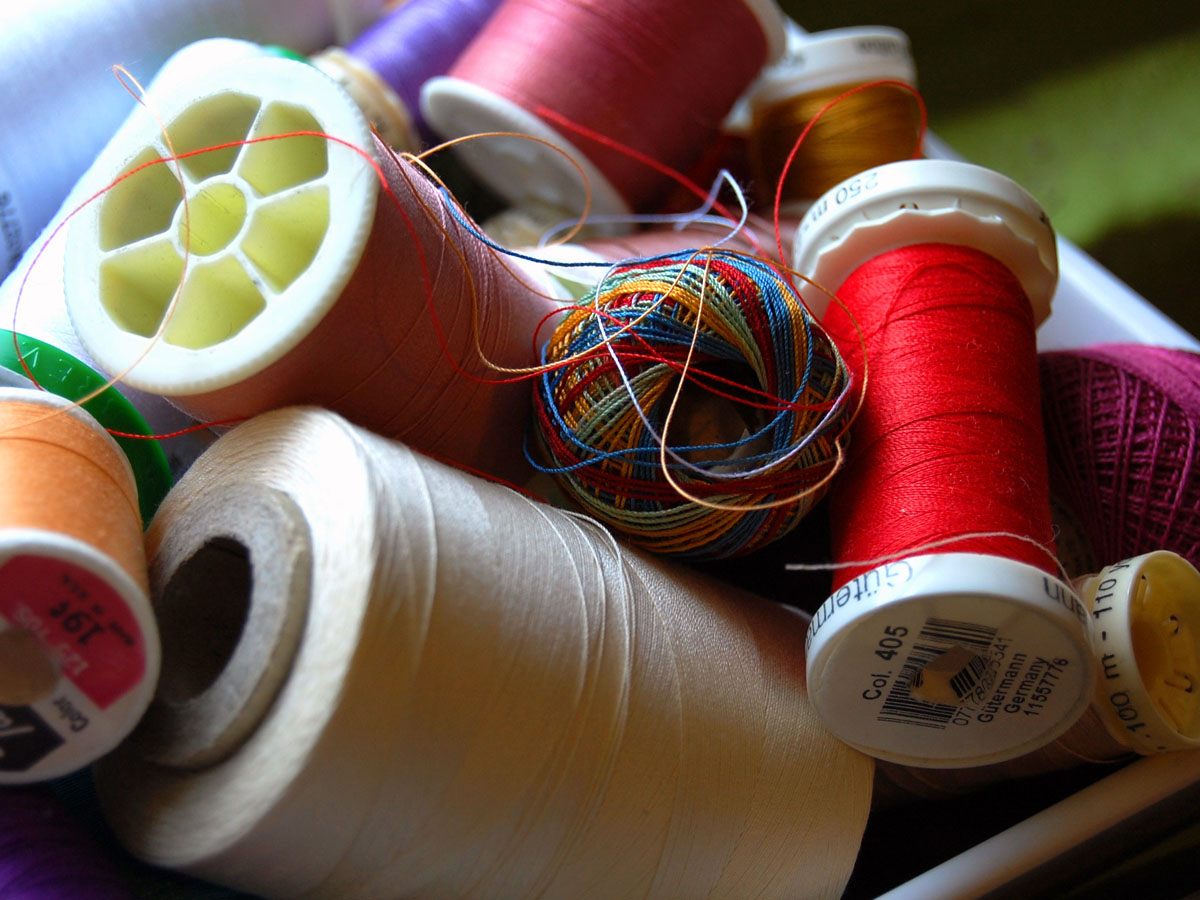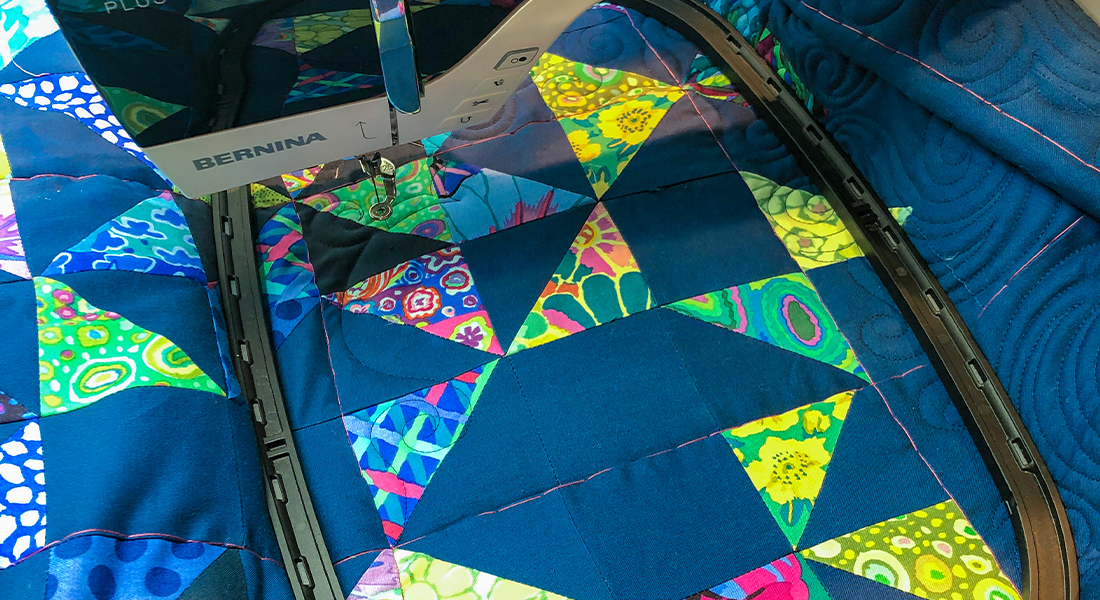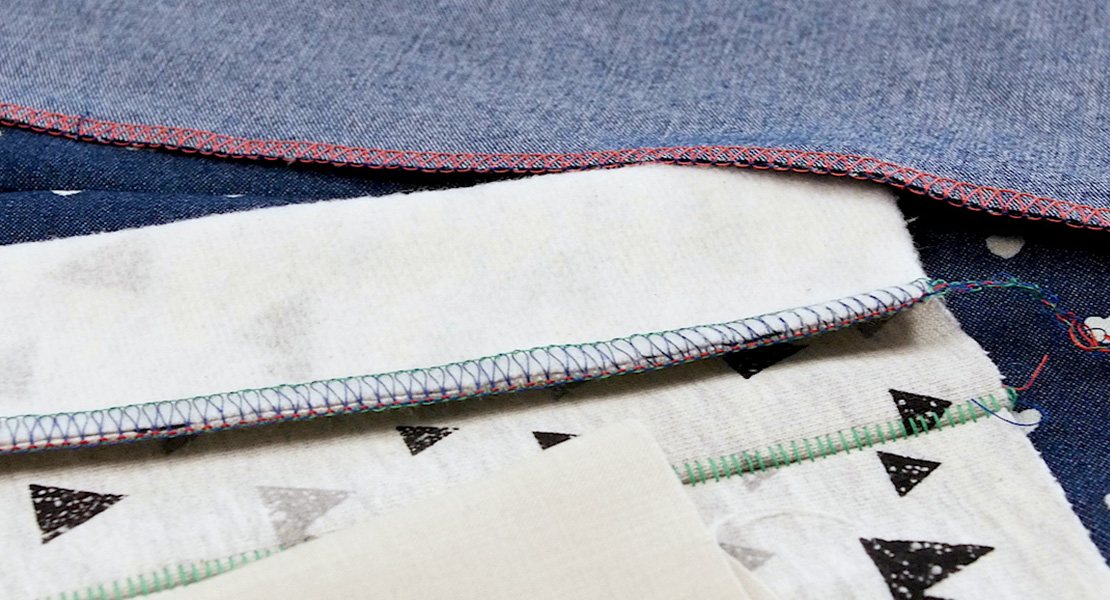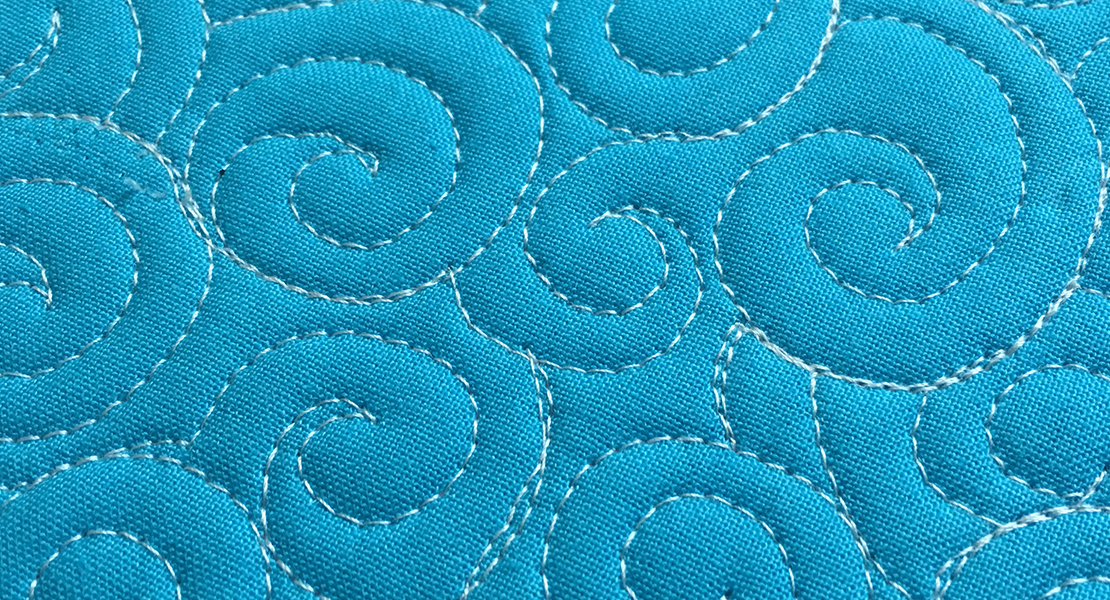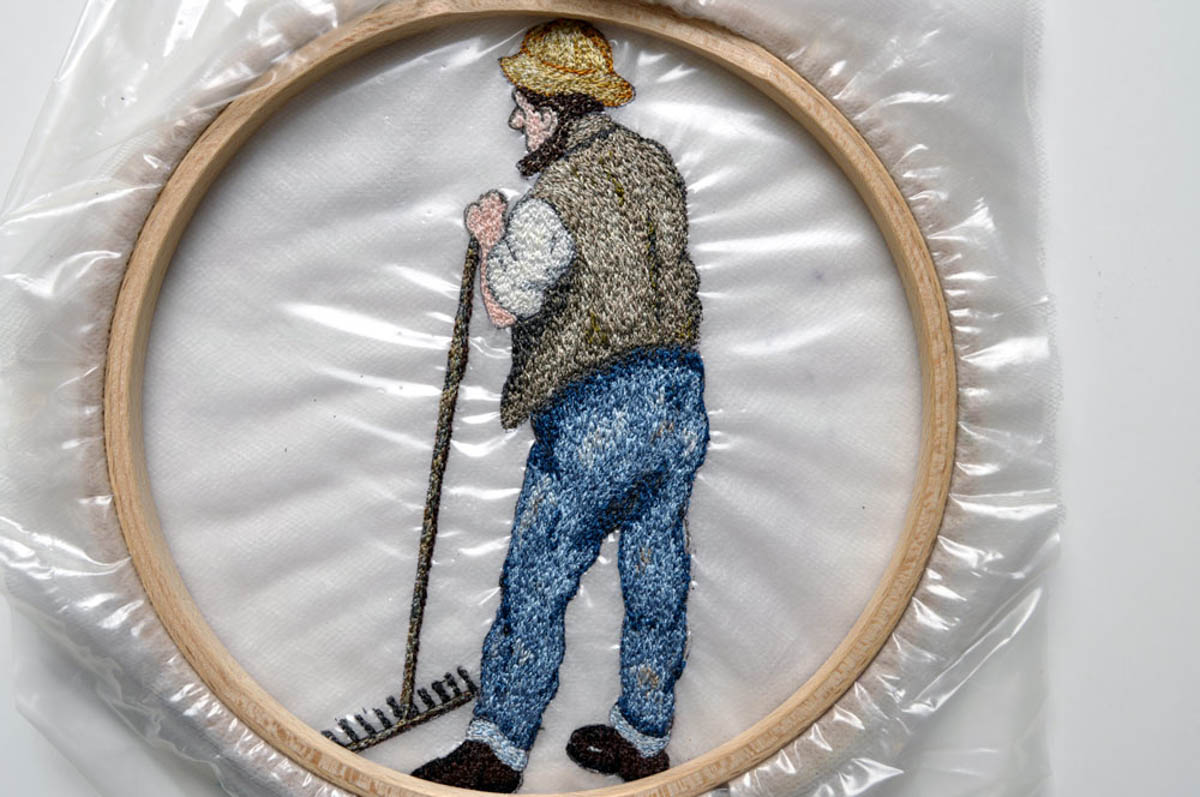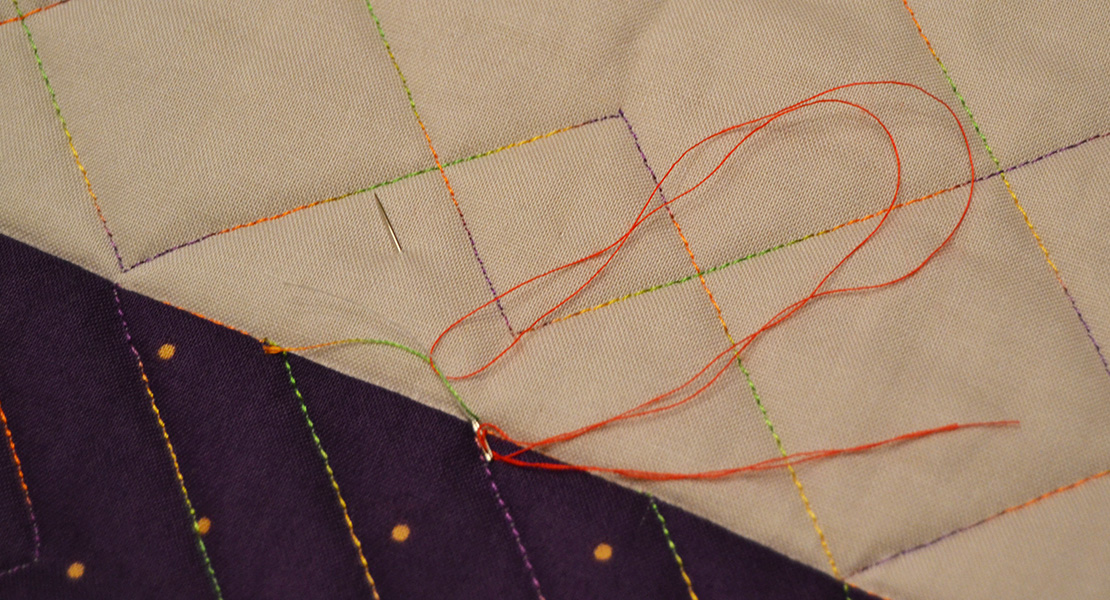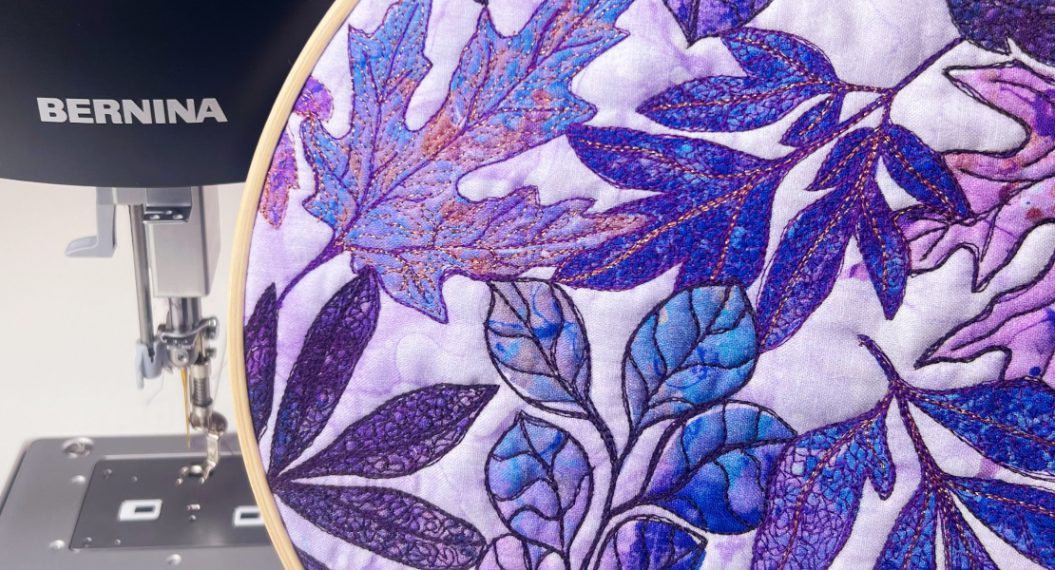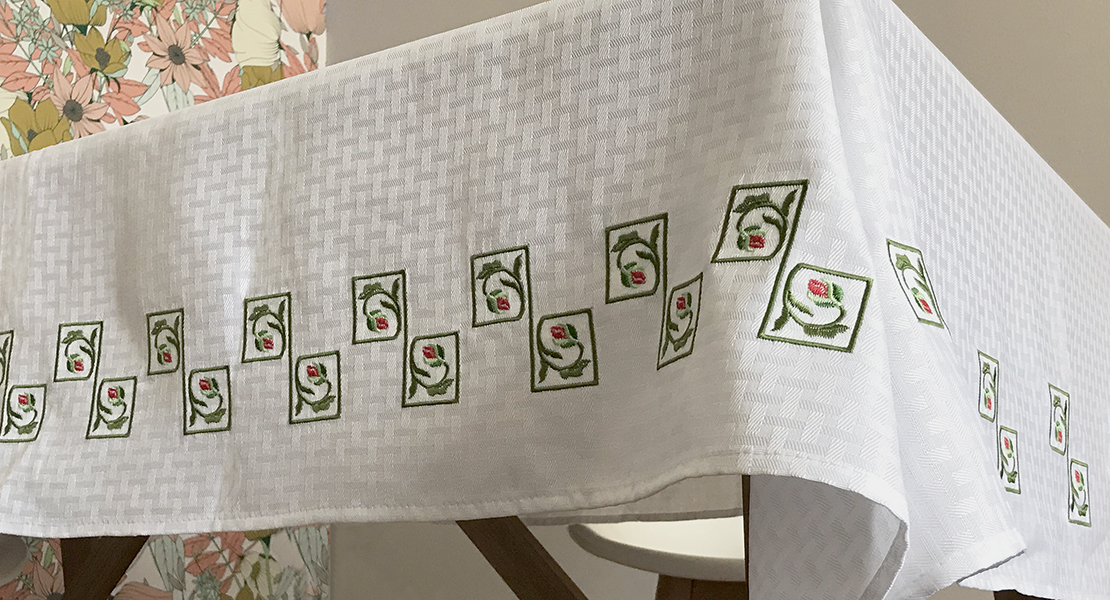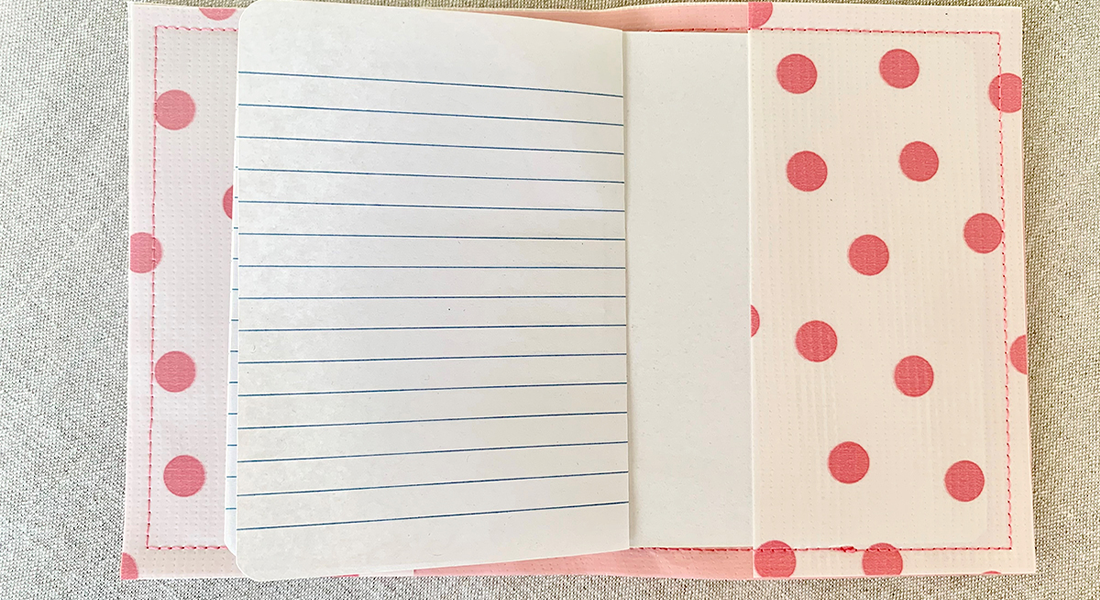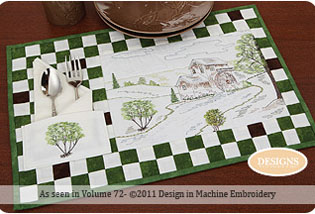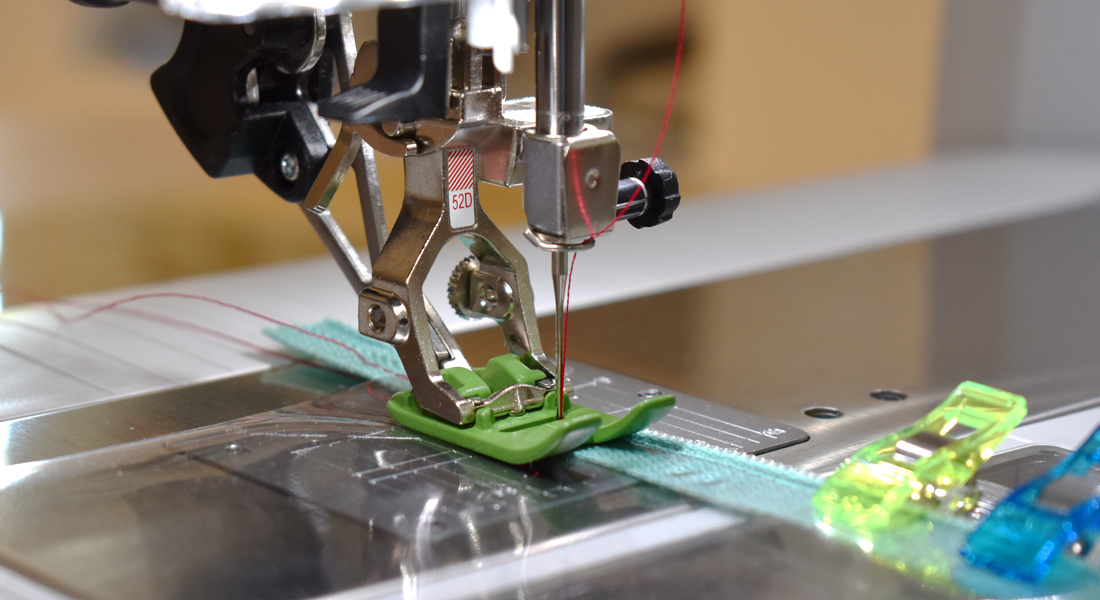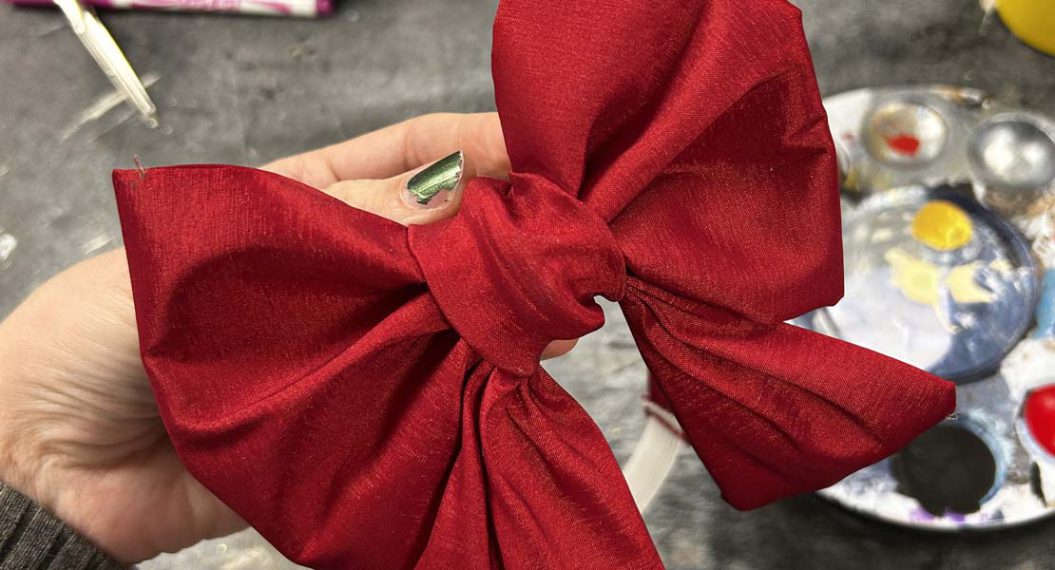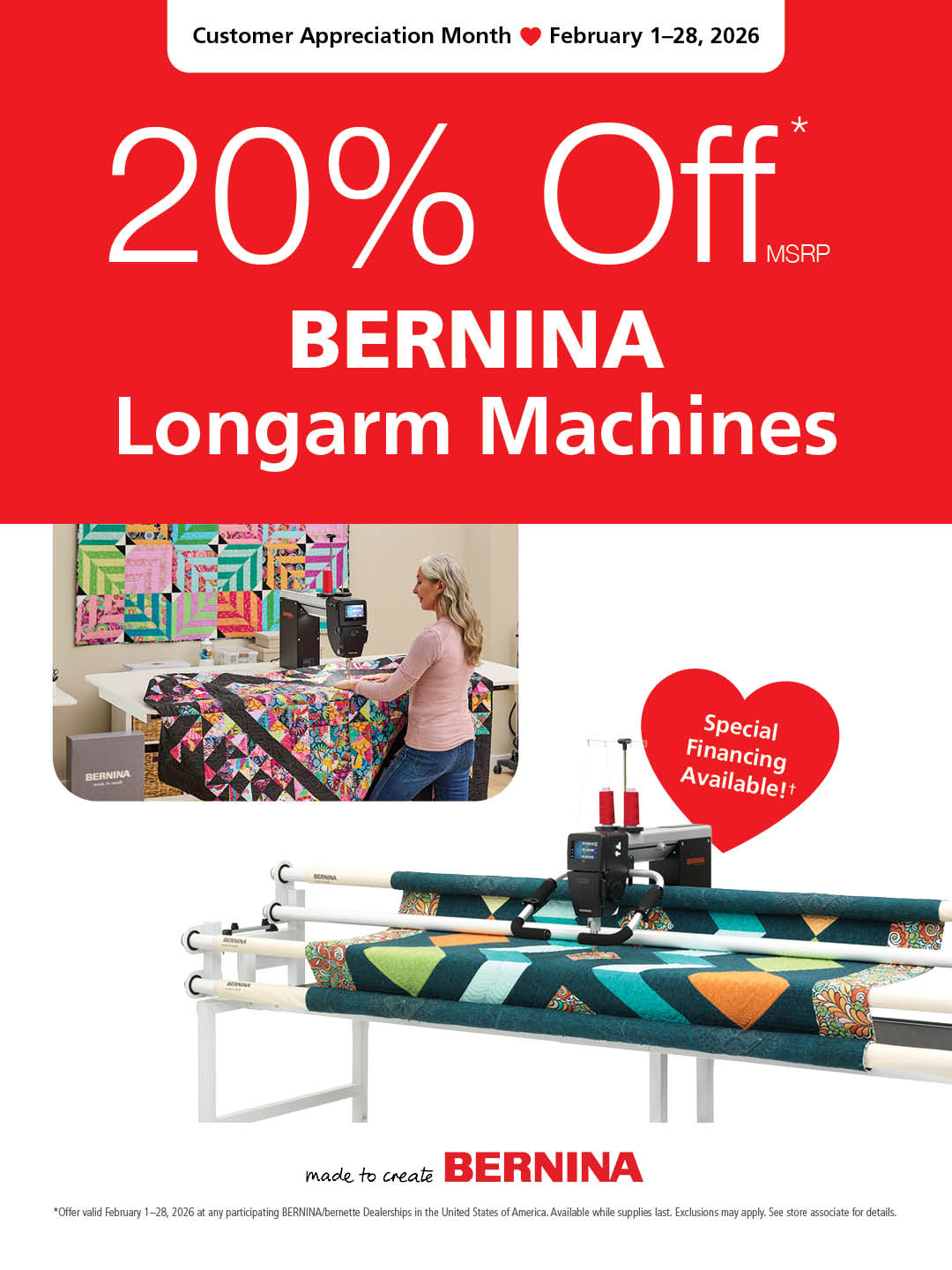How to Design with Thread
Thread is to quilters as watercolor and oil are for painters. A rose painted with watercolor looks very different than one painted with oil. Similarly, different threads types create different quilting looks. Nora’s Rose Motif, quilted with heavyweight, high sheen thread becomes a focal point. On the other hand, roses quilted with lightweight, low sheen thread, create a subtle background texture. The key to designing with thread is to first understand your quilting goal and then choose the right thread for the job.
I’m Lori Kennedy author of 25 Days to Better Machine Quilting. In this installment of our Get Started with Free Motion Quilting Series, we will cover how to create a variety of quilting effects using thread. By thoughtfully choosing thread based on color, weight, and sheen, we can create more design interest in the quilted line.
- These two threads are the same weight, but different colors.
Thread Characteristics in Quilt Design
(NOTE: Before continuing, it might be helpful to review thread characteristics. See How to Choose the Right Thread )
Three characteristics play an important role when designing with thread: color, weight, and sheen—in that order.
Color
Color is chosen to either blend or contrast with the background fabric. When thread is similar in color and value to the background fabric, the quilting line will be nearly invisible. The quilted line will “read” as texture. On the other hand, when the thread color and value contrast with the background fabric, the stitching line will be more noticeable. The quilted line will be a focal point on the quilt.
- These two threads are similar colors, but different weights.
Weight
Heavyweight thread is always more noticeable than lightweight thread. Some thread is so lightweight it seems invisible. When your quilting goal is to create a subtle texture, choose lightweight thread. Conversely, for star-of-the-show motifs, choose the heaviest weight thread.
- These two threads are similar in color but have different sheens.
Sheen
Sheen is the ability of a thread to reflect light. High sheen thread is more noticeable than low sheen, though the difference is usually subtle. The choice is mostly preference.
When designing with thread, choose color first, then weight, then sheen. For example, if you have the perfect color match, but not in the ideal weight, go with the perfect color match.
Quilting Techniques
Stitch-in-the-Ditch Quilting
Stitch-in-the-ditch quilting is the technique of stitching in the seams of a pieced block. By stitching in the ditch, seam lines are embedded in the batting layer and block lines become more distinct. The goal is to create a nearly invisible quilted line. When stitching in the ditch, choose lightweight thread and match the fabric background as closely as possible. The line will disappear and all you will notice is the set-in appearance of each seam of the block. (NOTE: Stitching in the ditch may finish the quilting for a block, but many quilters add a focus motif on top of the invisible ditch stitching.)
Color
- Match the background color
Weight
Lightweight or very lightweight (100, 80, 60wt)
Sheen
- Low sheen
Outlining
Most often, outlining is done to create a subtle texture throughout the block. Curved or straight outlining emphasizes the shape of the block or parts within a block. To minimize the visual impact of the quilted line while emphasizing the shape of the block, choose a lightweight, low contrast thread.
Color
- Match background color
Weight
- Lightweight or very lightweight (100, 80, 60wt)
Sheen
- Low or high sheen
Texture
The goal of the quilted line is often to create a subtle texture. Allover motifs which cover an entire quilt are usually subtle texture designs. Avoid using thread that is too noticeable which detract from the quilt top design. Instead, choose lightweight thread that blends with most of the fabrics. If the quilt contains areas of high contrast (for example, dark and light areas) choose thread in a medium value-or use more than one thread to match the background.
Color
- Blends with most of the colors of the quilt
Weight
- Lightweight or very lightweight (100, 80, 60, 50wt)
Sheen
- Low or high sheen
Focal Point
Whenever you want a motif or quilt design to stand out–to be a noticeable focal point, use heavyweight thread in a color with good contrast to the background fabric. Motifs are always most obvious on solid or near solid fabric so it is best to choose plain blocks and borders to add focal motifs.
Color
- Contrast the background fabric
Weight
- Heavyweight thread (40, 30, 28wt)
Sheen
- High or low sheen
Pro Tip: Make Samples!
To avoid disappointing results, always stitch a few thread samples on the fabric within the quilt. While we are always anxious to just “get quilting”, the time spent testing thread choices can make all the difference!
For more free motion quilting motifs and tips, join me at LoriKennedyQuilts.com!









